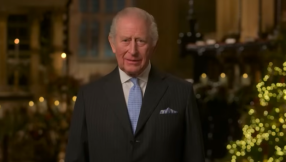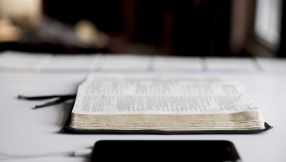The Church of England should be stripped from Prince Charles' coronation service and replaced with an 'oath to the people' to reflect Britain's religious diversity, a new report suggests.
Charles will inherit the Queen's title of supreme governor of the Church of England when he takes the Crown. However the substantial changes to Britain's religious and cultural outlook since the Queen's coronation in 1953 have raised questions over whether the new king should continue to hold the title of Defender of the Faith - one adopted by all British monarchs since it was conferred on Henry VIII by Pope Leo X in 1521, before the Tudor king split from the Catholic church.
The UCL Constitution Unit, a respected think tank, has produced a raft of recommendations for the planning the Prince of Wales' accession to the throne after the Queen, aged 92, dies.
It recommends changing the three statutory oaths a new monarch must swear: the Scottish oath, to uphold the Presbyterian Church of Scotland; the Accession Declaration oath, to be a true and faithful Protestant; and the coronation oath, which includes promising to uphold the rights and privileges of the Church of England.
'These oaths date originally from 1688-1707, when Catholic Europe was seen as an existential threat. In our more secular and pluralist society, the oaths need to be revised and updated; or dropped altogether,' the report published last night says.
They 'reflect a period of history that is now over', the reports adds. 'The nature of religious belief in the UK has greatly changed...Half the population now has no religious affiliation whilst the number belonging to non-Christian religions has grown to 6 per cent.'
Professor Robert Hazell and Dr Bob Morris suggest a 'radical reformulation' that would see the Scottish oath become an oath about the Union; the Accession Declaration, traditionally made before Parliament, become an oath to uphold the constitution and our laws; and the coronation oath, an oath made to the people.
Such a move would require MPs to pass a new law before the Queen dies. If this was not possible, the government should make a statement to Parliament explaining how each oath should be interpreted for modern times.
The study admits the change would be a major upheaval.
'It may not be easy to reach consensus, with the churches, other faith groups and all sections of society; ultimately the government has to decide,' it says.
The two experts also make a series of recommendations about the coronation ceremony itself, recommending a 'slimmed' down version of the Queen's 1953 spectacle, which took 14 months to organise and saw scaffolding installed inside Westminster Abbey to cram 8,000 people inside.
That should be viewed as Britain's 'last imperial hurrah', the report says, and Charles's ceremony should reflect the changes in the last half century.
'The UK is no longer a global or a colonial power. Celebration will therefore need to reflect what the UK has become rather than what it once was,' it says.
'Instead of featuring peers in ermine and coronets, a modern version of the mediaeval act of homage could involve the participation of civil society.'
Dr Bob Morris said: 'In 1953 the UK was then the head of a global colonial empire, with armed forces five times their present size, capable of mounting a procession of over 40,000 troops with attendant military bands.
'The UK now is a much more diverse, pluralist and secular society. The coronation needs to reflect that greater diversity: it will define not just the monarchy, but the whole nation whom the monarch is to represent.'
Prof Hazell added: 'The Accession Council will be the new monarch's first official appearance, at a very solemn moment, which will set the tone for the new reign. There will be no shortage of critics ready to snipe at the new King and his government if anything goes wrong. So the more things can be thought about in advance, the better.'
Prince Charles himself raised questions about the role of religion in his coronation when said he would like to see himself as a defender of faith, more generally. He later clarified he would keep the title of Defender of the Faith.
'I would rather be seen as "Defender of Faith", all those years ago, because, as I tried to describe, I mind about the inclusion of other people's faiths and their freedom to worship in this country,' he told the BBC. 'And it's always seemed to me that, while at the same time being Defender of the Faith, you can also be protector of faiths.'













